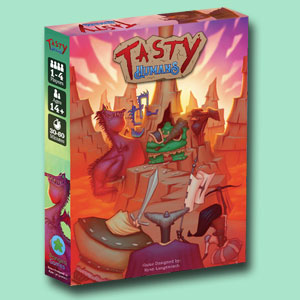Dev Diary posts are made to teach game development through specific examples from my latest project: Highways & Byways. Just here for Highways & Byways updates? Click here.
Self-publishing a board game for the first time is an incredibly disorienting and complicated experience. Many of you know I created this blog to mentor first-time game developers after my unorthodox start in the board game industry. My own experiences formed my beliefs about how critical it is to teach others how to achieve their goals.

Looking for more resources to help you on your board game design journey?
Here you go: no email required!
Like this writing style?
Check out my latest blog on marketing here.
I am going to launch my second board game on Kickstarter in about three weeks. My first game was War Co., successfully launched in September 2016 to the tune of $12,510. I am not a massive success. I am not Jamey Stegmaier or James Mathe. If you’re a first-timer, I’m just a couple of years ahead of you. I have many years to go before my company, Pangea Games, is a powerhouse!
Nonetheless, I believe that the moment you achieve some measure of success, you can start to teach others. That success can be a single Kickstarter campaign, a completed game, taking steps toward publishing (like commissioning art), or simply having a good play-test. Mentoring others is so important and you shouldn’t underestimate your own knowledge just because you haven’t made a million dollars yet. In fact, I’ve gone ahead and listed five reasons while I believe mentoring your fellow game developers is such a big deal.
1. The first year knocks out the vast majority of would-be game developers.
The hardest part of learning any new skill is the beginning. I don’t mean the very beginning, such as in the first few weeks and months when everything you’re learning is sexy, exciting, and new. I’m talking about that critical period of time after the novelty wears off and before you see your first big success. I call this the Great Filter.
The Great Filter knocks out game developers when they find out how tough play-testing is. It knocks them out when they find out there are a dozen games like theirs on Kickstarter at this moment. The Great Filter is at work when creators realize that building an audience comes down to talking to an unfathomable amount of people and being rejected an even more unfathomable amount of times.
Having somebody to talk to keeps game developers from being knocked out by the Great Filter. If we want a mature, happy, healthy, thriving tabletop games industry, we have to help one another. That’s the only way we can maintain the staggering growth we’ve seen in the last few years.
2. It’s a great way to network.
If you want to make people like you, consider their interests. Ask yourself “what will make their life better?” and then try to give them that. Being generous has a funny way of building up good karma.
Sharing knowledge is the most scalable way to fulfill others’ needs. You can dramatically improve someone’s life for the better simply by giving them the know-how they need to move forward in some aspect of their life.
3. It’s a great way for everybody involved to learn.
The act of teaching forces you to slow down and understand your own thought processes. By explaining why you do something to someone else, you codify your own beliefs. This is a powerful effect and you can see it at work in schools where students who tutor end up doing better than before they started tutoring.
This is definitely true for game development. I’ve done tons of research for this blog and for people asking questions on Discord, which has built up my understanding of manufacturing, finding artists, marketing, and much more!
4. It teaches you to be critical of your own work when you need to be.
It’s easier to look at other people’s work with a critical eye that you wouldn’t be able to cast upon your own work. By practicing giving others feedback, you give yourself the ability to objectively evaluate games and business plans on their own merits.
This skill is one you have to hone over time and it’s not something you can easily polish to perfection on your own work. When you’re emotionally wrapped up in something, it’s hard to see it for what it is. That’s why helping others perfect their ideas helps you build the skillset and objective mindset needed to perfect your own. This same effect is why blind play-testing of board games is so important.
5. Having a community keeps you in for the long haul.
Everybody can use a helping hand, especially beginners. This goes for game development, your career, parenting, and even getting physically fit. You can’t shortcut game development unless you have lots of people or loads of cash.
There will be times when you are exhausted. There will be times you won’t want to go on any further. If you help out others, though, you’ll either build up or become part of a community. Either way, having a community of like-minded individuals will help you stay mentally sharp for the long road ahead.
Most Important Highways & Byways Updates
- Three weeks to the campaign!
- Last week, I gave away an Amazon gift card. This week, it’s a copy of Ticket to Ride. If you want it, you’ve got a little over 24 hours after this post goes up to get it on the Highways & Byways Facebook page.
- I’ll most likely be printing with Shuffled Ink, with Panda Games as a backup plan.
- I spent a lot of this weekend filming the Kickstarter video.
- I’m starting to investigate the cost of stretch goals.




